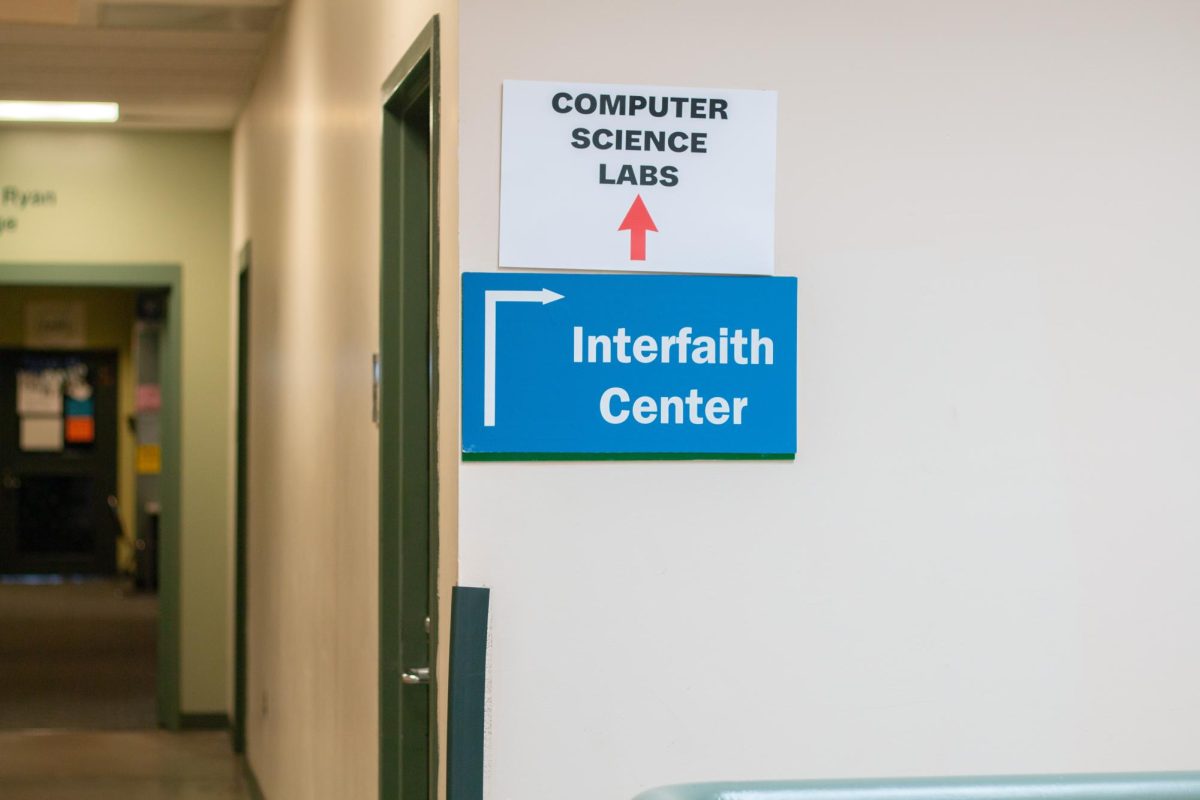To be Jewish is to question. Growing up, I was taught the importance of not blindly accepting information as the truth, and that there is immense power within the simple act of asking “why.” No question is stupid, silly or absurd; how’s, why’s and do’s stimulate the historical Jewish tradition of engaging in critical thinking. In our current epoch, it seems particularly fitting to return to this method of evaluating and understanding the world. Regardless of how difficult or uncomfortable it is, there is explicit urgency to question the conflict in the Middle East.
Therefore, I propose the following questions. Do the actions of the Israeli government and the support of Western powers uphold core Jewish values? How can we take inspiration from these principles to address the current crisis? Exploring the important principles of justice, repairing the world and human dignity provides a framework for approaching these inquiries.
One of the core principles Jews are taught to follow throughout life is “tikkun olam,” which roughly translates to “repairing the world.” Although the term is not found in the Hebrew Bible, the Torah, it is found in the Talmud, a compilation of rabbinic teachings that inform Jewish law. To Jews throughout the diaspora, tikkun olam is a call to make the world a better place. Practicing tikkun olam may come in the form of “tzdakah,” charity, or the performance of “mitzvot,” good deeds or religious observations. Tikkun olam also influences ethical behavior and the choices we make. Bettering our world extends past small interactions in our personal communities—it expands into our attempts to resist injustice and oppression across societies.
To practice tikkun olam is to advocate for and pursue social justice. There is no metric for deciding which oppressed groups are deserving of advocacy and respect. The 1948 establishment of the state of Israel on British-controlled Palestinian land has resulted in the ongoing subjugation of the Palestinian people. As a result, the value of tikkun olam is and was not involved in the policies, wars and apartheid that Israel implemented. In many ways they are unethical, damaging the world rather than improving it. Today, the world is faced with this brutal reality more than ever. As the conflict in Gaza rages on, I wonder why the West has deemed Palestinians undeserving of peace and justice. Tikkun olam in Israel and occupied Palestine today has been echoed in Jewish calls for ceasefire. A ceasefire would allow for the current essential needs of the citizens of Gaza to be met. It would give a chance for those dedicated to tikkun olam to help repair the physical and psychological damage that Israel has waged upon Gaza.
“Tzedek, Tzedek Tirdof!” “Justice, justice shall you pursue!” This call to action is found within the Torah, the most ancient and sacred text of Judaism, in Deuteronomy 16:20. Tzedek means more than simply “justice”: It is a way of thinking and acting. Calls for change in situations of injustice from the Jewish community have been repeated throughout history. During the 1950s and ’60s, Jewish people were heavily involved in the struggle for civil rights. Understanding that the oppression of Black Americans and the persecution of Jewish people were deeply connected fueled engagement in the movement.
Today, there is also a massive number of Jews who are fighting for an end to the apartheid and war affecting Palestinians. Organizations such as If Not Now have been at the forefront of demanding tzedek, tzedek for all. Justice and rights must be distributed equitably to those struggling throughout the world. Israel’s laws and societal structure reject this fundamental Jewish value. Women, Black people and immigrants bear the brunt of legally enforced discrimination. Nothing about this well-recognized apartheid state is influenced by tzedek. Countless Jewish scholars, both modern and historical, have criticized the oppressive nature of the creation and maintenance of the state of Israel. Pursuing justice for the oppressed cannot and should not be denied to certain communities, and yet, justice is nowhere to be found for the Palestinian people.
Images of buildings reduced to rubble, families cast out into the streets and constant plumes of smoke are ubiquitous in Gaza. Where is the humanity or the dignity that the people of Gaza deserve in this volatile situation? “K’vod hab’riyot” tells us that all humans must receive dignity, especially in times of crisis. The Palestinian people, both in the Middle East and throughout the world, are vulnerable, fearful and rightfully angry. K’vod hab’riyot tells us that when someone is struggling, we must approach them with kindness and empathy rather than distance and disgust.
When humans are labeled as “beasts,” there is no dignity. This rhetoric justifies the bombing of hospitals, ambulances and “safe zones.” Innocent civilians have become collateral damage, and the death count rises by the hour. Dehumanization allowed for creation of the Palestinian territories and the displacement of millions. In the state of Israel, k’vod hab’riyot is allocated to Israelis, to White Jews and Christians. Determining who is “human” and who is not opens the door to the brutal and morally reprehensible oppression of the Palestinian people. In the future, as we fight for the destruction of the Israeli apartheid state, we must practice k’vod hab’riyot. Checkpoints must be eliminated; Palestinians should be able to move freely within the region without the fear of surveillance or being detained. Equal voting rights must be enacted and maintained, and the walls encasing the West Bank and Gaza must be destroyed. These efforts will begin to restore the dignity and autonomy of the Palestinian people.
A month ago, I was celebrating Simhat Torah with my family. We danced, sung and wrapped ourselves in the holy word of the Torah. A blooming feeling of joy spread throughout me as I soaked up the feeling of my rich culture. However, my heart was heavy, and tears threatened to spring from my eyes. That fateful day was the beginning of an ongoing humanitarian crisis, hostage situation and destruction of homes and families. As a Jew, my feelings have been scrambled, racing between fear, anger and sadness—but I must rally. Using the values that my ancestors followed, I will carry on our tradition of questioning. I will continue to turn to the holy works, interpretations and encapsulate myself in the sprint of tzedek. It is my duty to criticize the apartheid state of Israel and call out for a ceasefire. I desire an end, but also a beginning—a start of a future where Palestinians are no longer second-class citizens. Because that is tikkun olam: repairing this broken, unjust world. As Debbie Freedman once said, “Not by might, not by power but by spirit alone—ruach!—shall we all live in peace.”


